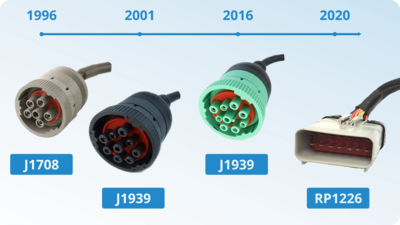You might remember that in February 2022, the FMCSA mandated a new standardized form of training for new drivers. What is it, and how has it affected the trucking industry?
What is ELDT?
Entry-Level Driver Training (ELDT) is the program that the Federal Motor Carrier Safety Administration (FMCSA) put in place to standardize training for all new CDL holders.
Before ELDT regulations were put in place, an individual looking to obtain a CDL would walk into the DMV and take the knowledge test. If they passed, they could schedule a time to come back and take the driving portion of the test. If they passed the road test, they would then be a fully licensed CDL holder. In theory, as long as a person passed the knowledge and road tests they could then operate an 80,000 pound tractor trailer with little to no experience or training.
Based on the Moving Ahead for Progress in the 21st Century Act (MAPS-2021) of 2012, the FMCSA was required to develop a standardized training program for entry-level drivers. After push backs and delays, the ELDT program was officially put into effect on February 7, 2022.
About the Training
According to the FMCSA, Entry-Level Driver Training is required to:
- Obtain a Class A or Class B CDL for the first time;
- Upgrade an existing Class B CDL to a Class A CDL; or
- Obtain a school bus (S), passenger (P), or hazardous materials (H) endorsement for the first time.
The two portions of Entry-Level Driver Training consist of theory instruction and behind-the-wheel (BTW) training. There is no minimum hour requirement for either the theory or BTW portion of ELDT, so it is up to the instructor to determine when drivers are proficient. The training covers about 30 subjects, and students must display proficiency in each of these before taking their CDL exam.
The Do-It-All Fleet Management Platform.
Start Today, No Contract. No CC.
Who is Affected?
Any new driver looking to get their CDL will have to obtain an ELDT certificate. Drivers who obtained their CDL license prior to February 7, 2022 did not have to go through ELDT, however if they are looking to upgrade a Class B CDL or obtain a school bus (S), passenger (P), or hazardous materials (H) endorsement they will have to complete that portion of the training.
Contrary to what some expected, this training program will not require drivers to attend a professional trucking school. There are many other training providers accepted by the FMCSA.
Click here to find an FMCSA certified training provider.
When this program rolled out it affected small carriers the most. Those that trained their own drivers would need to get their training program registered or use a third-party provider instead.
It remains to be seen if this new standard for training has any bearing on fleet safety. The hope is that by setting a standard for basic driver education, overall driving behaviors will improve.
Learn more about ELDT here.
Does your fleet need ELD or Ai Dash Cameras? Get a free no pressure demo here.
Recent Blogs
by Elyse Byers
July 5, 2024




